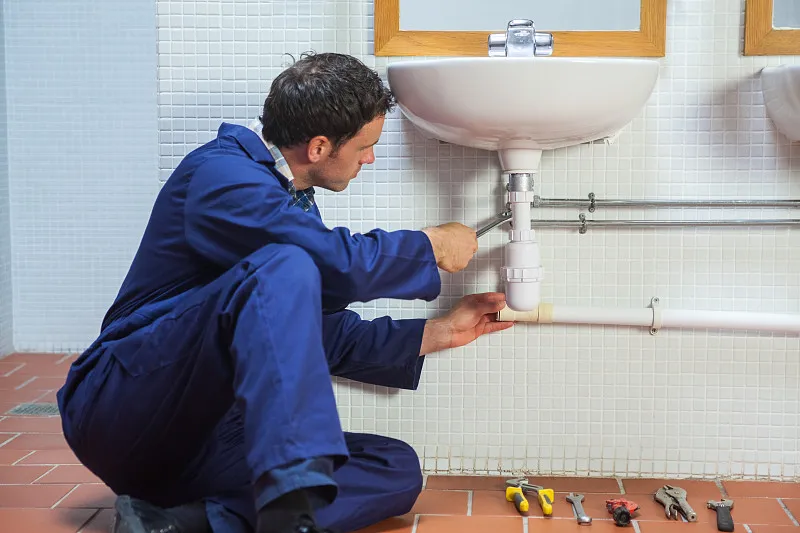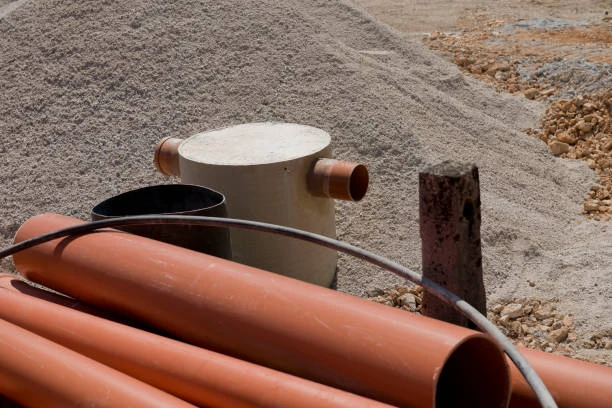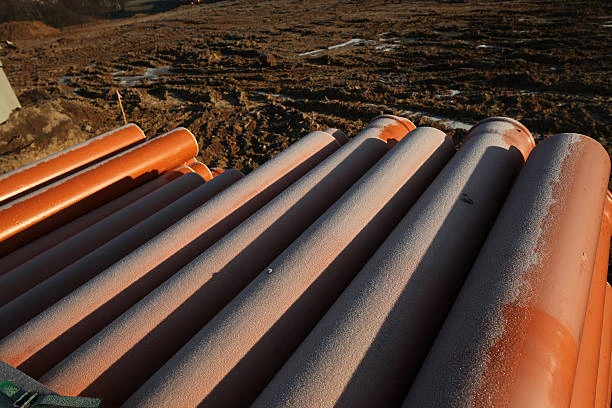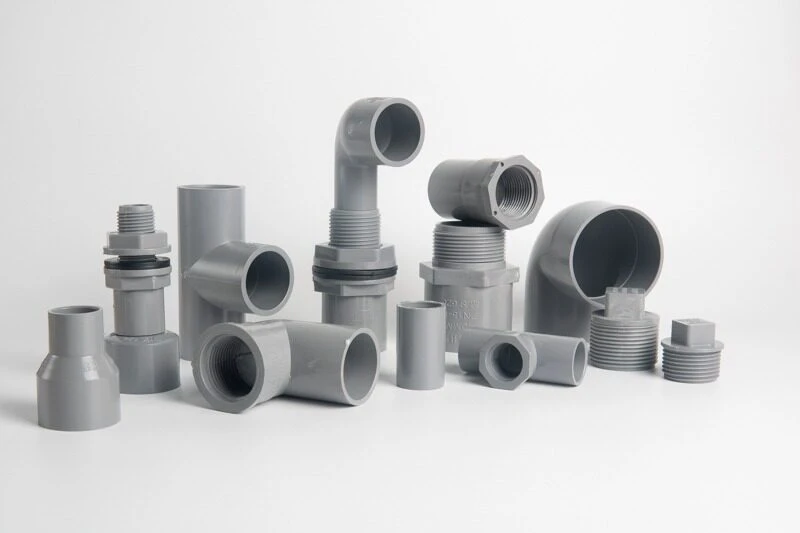Introduction
The evolution of plumbing materials has brought about several innovative solutions, and one of the most promising materials is Polyphenylsulfone (PPSU). Known for its superior durability, flexibility, and resistance to corrosion, PPSU fittings are becoming the preferred choice for modern water distribution systems. This article explores the unique advantages of PPSU fitting and why they are considered the future of plumbing technology.
What Are PPSU Fitting?
PPSU (Polyphenylsulfone) fittings are high-performance thermoplastic fittings used in plumbing and water distribution. Unlike traditional metal fittings like brass or copper, PPSU is a non-metallic material that offers excellent resistance to both chemicals and extreme temperatures. These fittings are particularly suitable for water distribution systems because of their long lifespan and the minimal maintenance they require.
Advantages of PPSU Fitting for Water Distribution Systems
- High Durability: PPSU is highly resistant to impact, cracking, and breakage, which ensures the longevity of these fittings.
- Corrosion Resistance: PPSU doesn’t corrode like metal fittings, making it ideal for water distribution.
- Temperature and Pressure Tolerance: PPSU fitting can withstand high temperatures and pressures without compromising performance.
- Lightweight and Easy to Install: Compared to metal fittings, PPSU is lightweight, which simplifies the installation process and reduces labor costs.
Durability and Longevity
One of the most significant advantages of PPSU fitting is their resilience over time. They maintain structural integrity even in harsh conditions, which means they require fewer replacements and repairs. For homeowners, this translates to fewer plumbing emergencies and reduced maintenance costs over the lifespan of the system.
Corrosion Resistance
Traditional metal fittings are susceptible to corrosion, especially in areas with high moisture levels or specific water chemistries. Corrosion can lead to leaks, pipe bursts, and water contamination. PPSU fitting, however, are corrosion-resistant, making them ideal for environments where metal fittings would deteriorate. This is especially beneficial for long-term water distribution systems, where corrosion can lead to costly repairs.
High Temperature and Pressure Tolerance
PPSU fittings are engineered to withstand both high temperatures and significant pressure levels. This makes them suitable for both hot and cold water applications. In residential and commercial water systems, these fittings remain stable and reliable under various temperature conditions, contributing to overall system safety and performance.
Ease of Installation
Because PPSU is lightweight and doesn’t require heavy-duty tools, installation becomes faster and easier. The installation process often involves simple tools and requires less labor than metal alternatives, reducing overall project costs. Additionally, the lightweight nature of PPSU fitting decreases strain on workers and improves the speed of the project.
Cost Effectiveness Over Time
While PPSU fitting might have a slightly higher upfront cost, they offer long-term cost benefits. The reduced need for repairs, replacements, and maintenance significantly decreases overall expenses. For property owners and plumbing professionals, this long-term cost-effectiveness is a major advantage, especially for large or complex water distribution systems.
Environmental Benefits of Using PPSU Fittings
PPSU fittings are more environmentally friendly than traditional materials. They are recyclable and have a lower production footprint compared to metals like copper and brass. As more industries prioritize sustainable materials, PPSU offers a way to align plumbing solutions with green building practices, supporting both environmental goals and efficient system design.
Applications of PPSU Fitting in Water Distribution Systems
PPSU fittings are versatile and can be used in various types of water distribution systems. They are commonly found in residential and commercial plumbing and are suitable for potable and non-potable water systems. Their resilience makes them a good choice for industrial applications, where durability and resistance to chemical exposure are essential.

Why PPSU Fittings are Replacing Traditional Metal Fittings
Metal fittings like brass and copper, though reliable, have limitations in terms of corrosion and environmental impact. PPSU, on the other hand, addresses these issues while providing additional benefits like flexibility and lightweight construction. This shift to PPSU fitting reflects a broader trend in the plumbing industry to adopt materials that combine performance with sustainability.
Comparing PPSU Fitting with Other Materials
- PPSU vs. Brass: Brass is durable but prone to corrosion. PPSU offers similar durability without the risk of corrosion.
- PPSU vs. PVC: While PVC is affordable, it lacks the temperature tolerance and durability of PPSU.
- PPSU vs. Stainless Steel: Stainless steel is strong but costly and heavy. PPSU provides a lightweight and cost-effective alternative.
Maintenance and Repair of PPSU Fitting
PPSU fitting require minimal maintenance due to their resistance to chemical damage and corrosion. Routine inspections are usually sufficient to ensure optimal performance. In the rare case of a repair, the modular nature of PPSU fitting allows for easy replacements without disrupting the entire system.
Industry Adoption of PPSU Fitting
The construction and plumbing industries are increasingly adopting PPSU fitting due to their benefits and sustainability. Many leading manufacturers and brands now offer PPSU-based solutions, and the market continues to grow as more businesses and homeowners recognize the advantages of these fittings.
Conclusion
PPSU fittings are revolutionizing water distribution systems with their combination of durability, flexibility, and environmental friendliness. As the plumbing industry prioritizes materials that balance performance and sustainability, PPSU fittings are set to become a cornerstone of modern plumbing infrastructure.
FAQs
- What makes PPSU fitting more durable than metal fittings?
PPSU fittings are resistant to corrosion, impact, and high temperatures, which contribute to their long lifespan and durability. - Are PPSU fitting suitable for both hot and cold water?
Yes, PPSU fittings are designed to handle a range of temperatures, making them suitable for both hot and cold water distribution systems. - How do PPSU fitting compare in cost to traditional materials?
While the initial cost may be higher, PPSU fittings save money in the long term due to reduced maintenance and repair needs. - Can I install PPSU fitting myself, or do I need a professional?
PPSU fittings are easy to install, but professional installation is recommended for optimal performance and secure connections. - Are PPSU fitting environmentally friendly?
Yes, PPSU fittings are recyclable and have a lower carbon footprint compared to metal fittings, making them an eco-friendly choice.


















